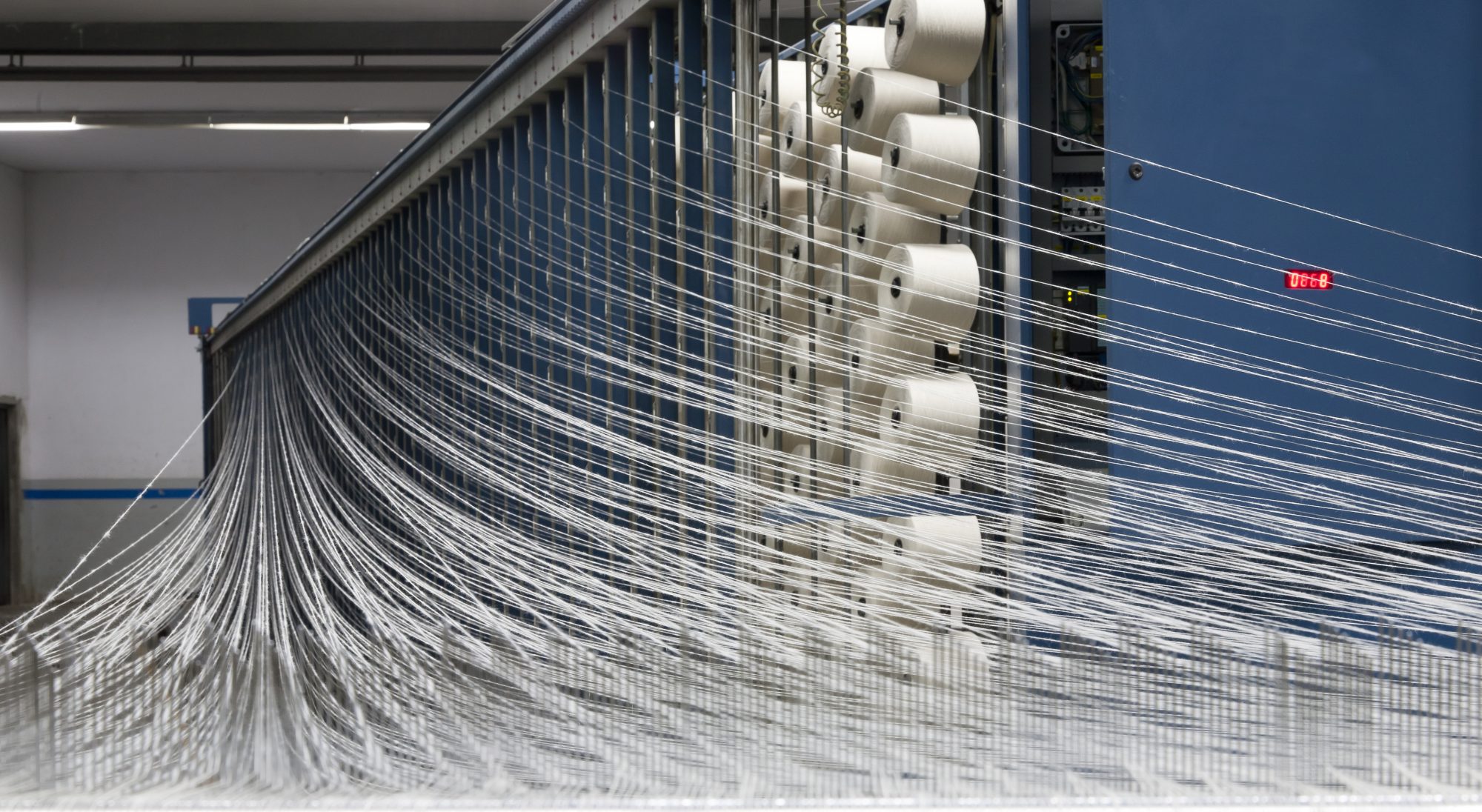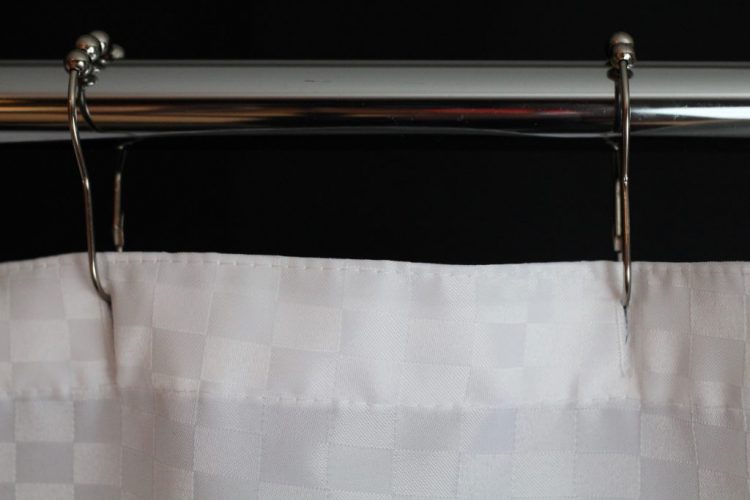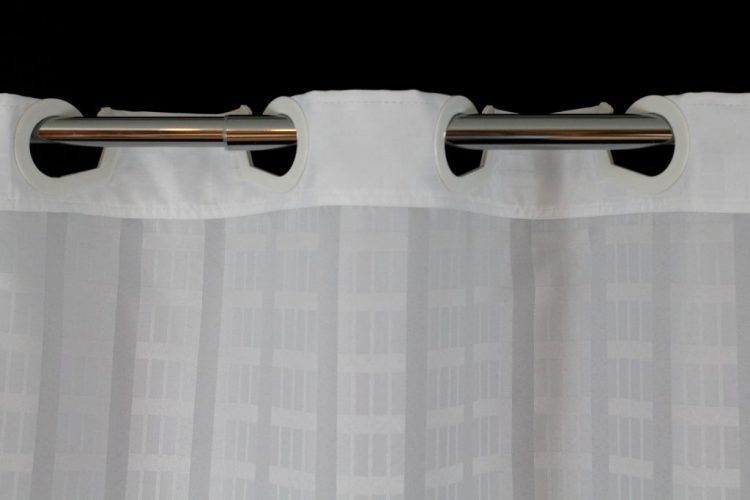Please choose Traditional or Pre-Hook Curtains
Shower Curtain FAQ
Both materials are considered vinyls. PVC (Poly Vinyl Chloride) is the more common of the 2 materials. The difference between PVC and PEVA (Polyethelene Vinyl Acetate) is that PEVA does not have the chlorine component and therefore is considered more environmentally friendly. Both materials perform similarly in use.
Nylon is considered the best alternative for a FABRIC shower curtain liner. It is stronger and softer than polyester, therefore is a popular choice for a shower curtain liner.
PEVA (Polyethelene Vinyl Acetate) is a vinyl product commonly used for shower curtains. Advantages of PEVA over a woven fabric are generally lower cost and less "billowing" or blowing of the shower curtain during use.
The primary difference in vinyl shower curtains is the GAUGE of the vinyl. This is true in both PVC and PEVA vinyl curtains. The gauge refers to the thickness of the vinyl. Common gauges for use in shower curtains are 5 ga, 6 ga, 8 ga, and 10 ga. Generally, the heavier the gauge, the more durable the curtain will be.
Most shower curtains are treated to be mold and mildew resistant. However, in shower areas with poor air circulation, mold or mildew may form on the curtain over time. Both fabric and vinyl shower curtains can be machine washed with a mild detergent with warm (not hot) water. They can be tumble dried on the low heat setting or simply hung in the shower to dry.
Most fabric and vinyl shower curtains can be machine washed and dried. Use a mild detergent on the cold or warm water setting. Do not use chlorine bleach as chlorine may damage the water repellant properties of the fabric. Tumble dry on cool or warm air setting or simply hang the curtain to air dry.
In general, vinyl shower curtain liners are less expensive than woven fabric curtains. It comes down to personal preference when considering the look and feel of the materials.


